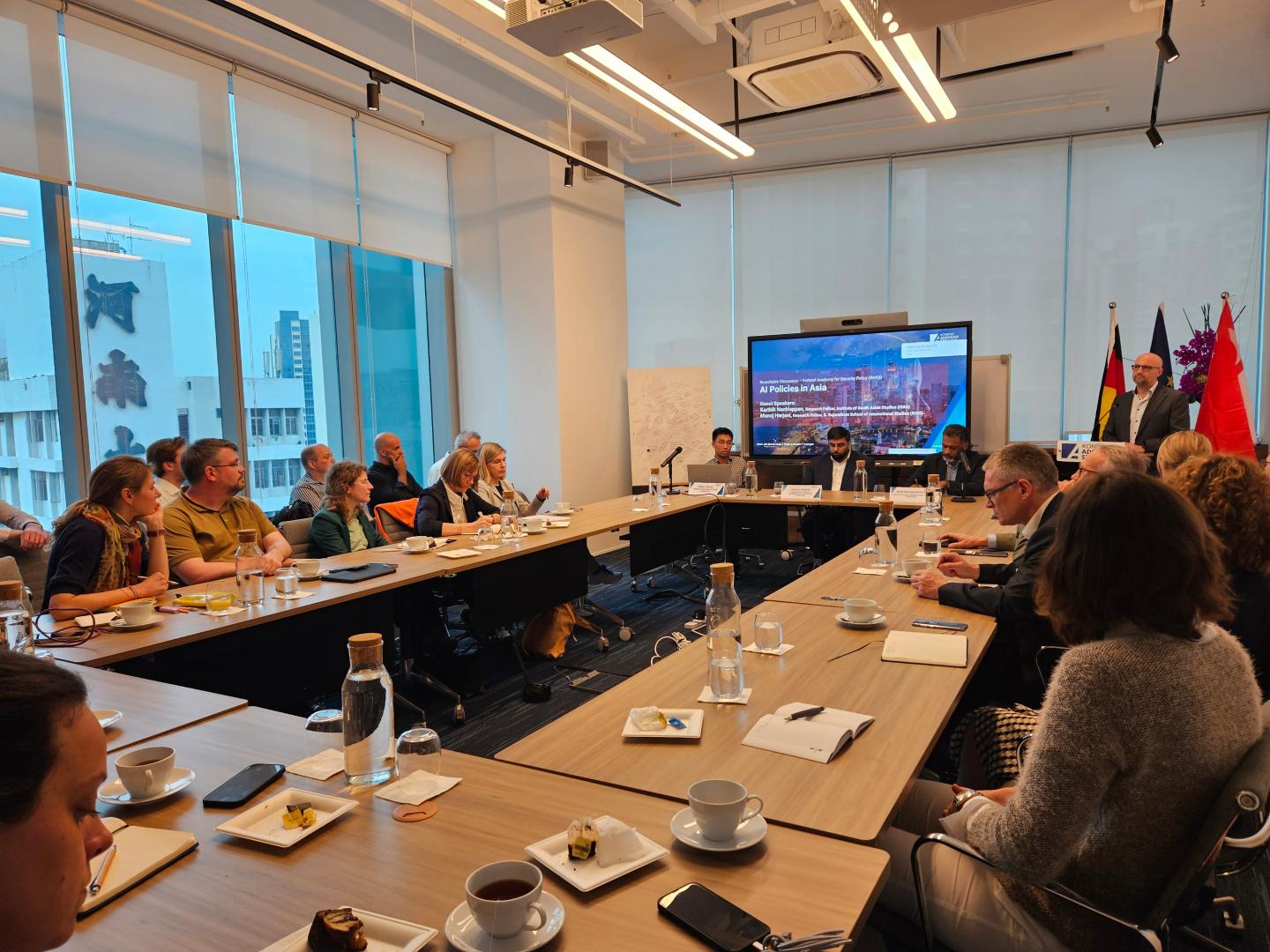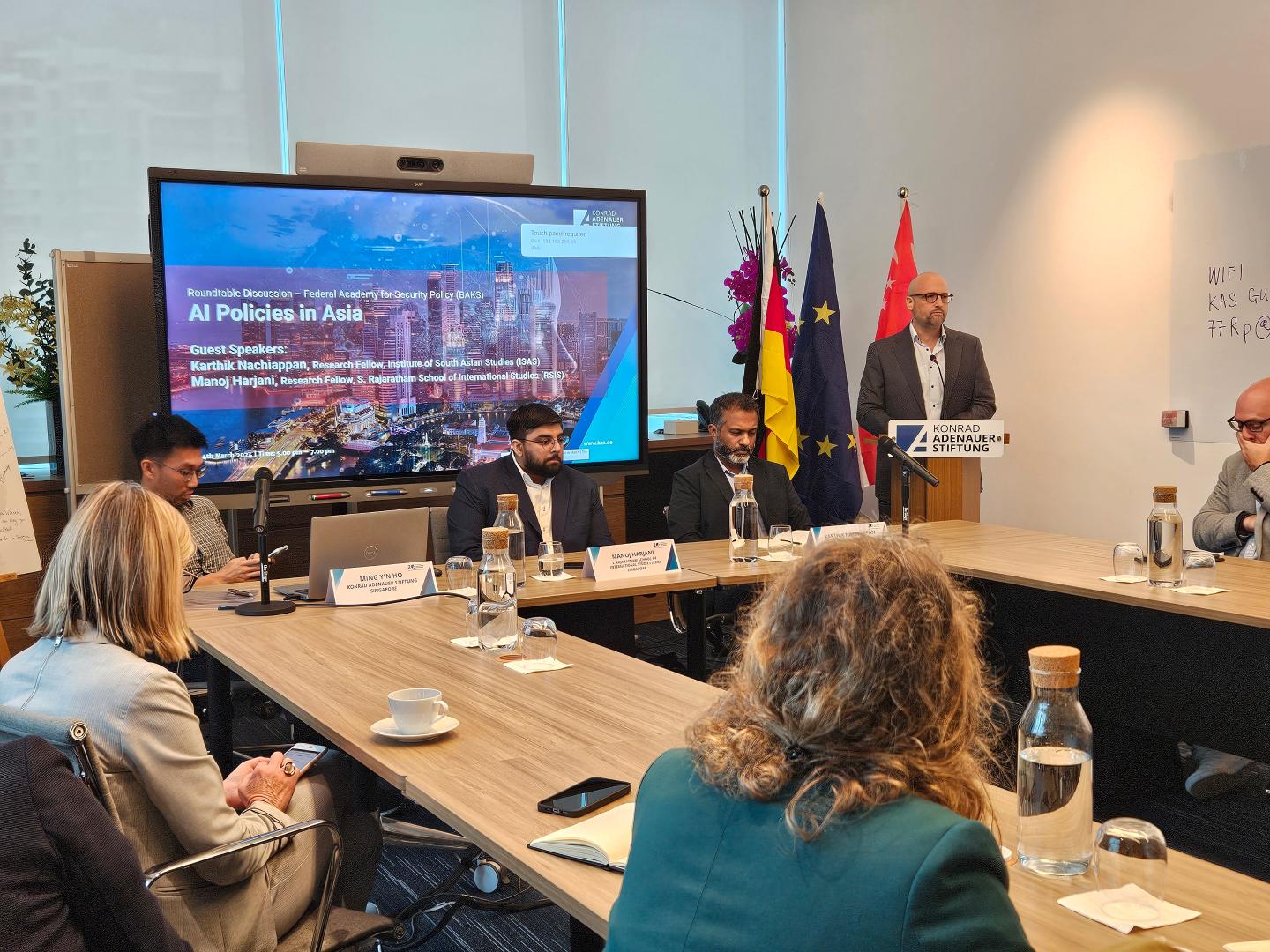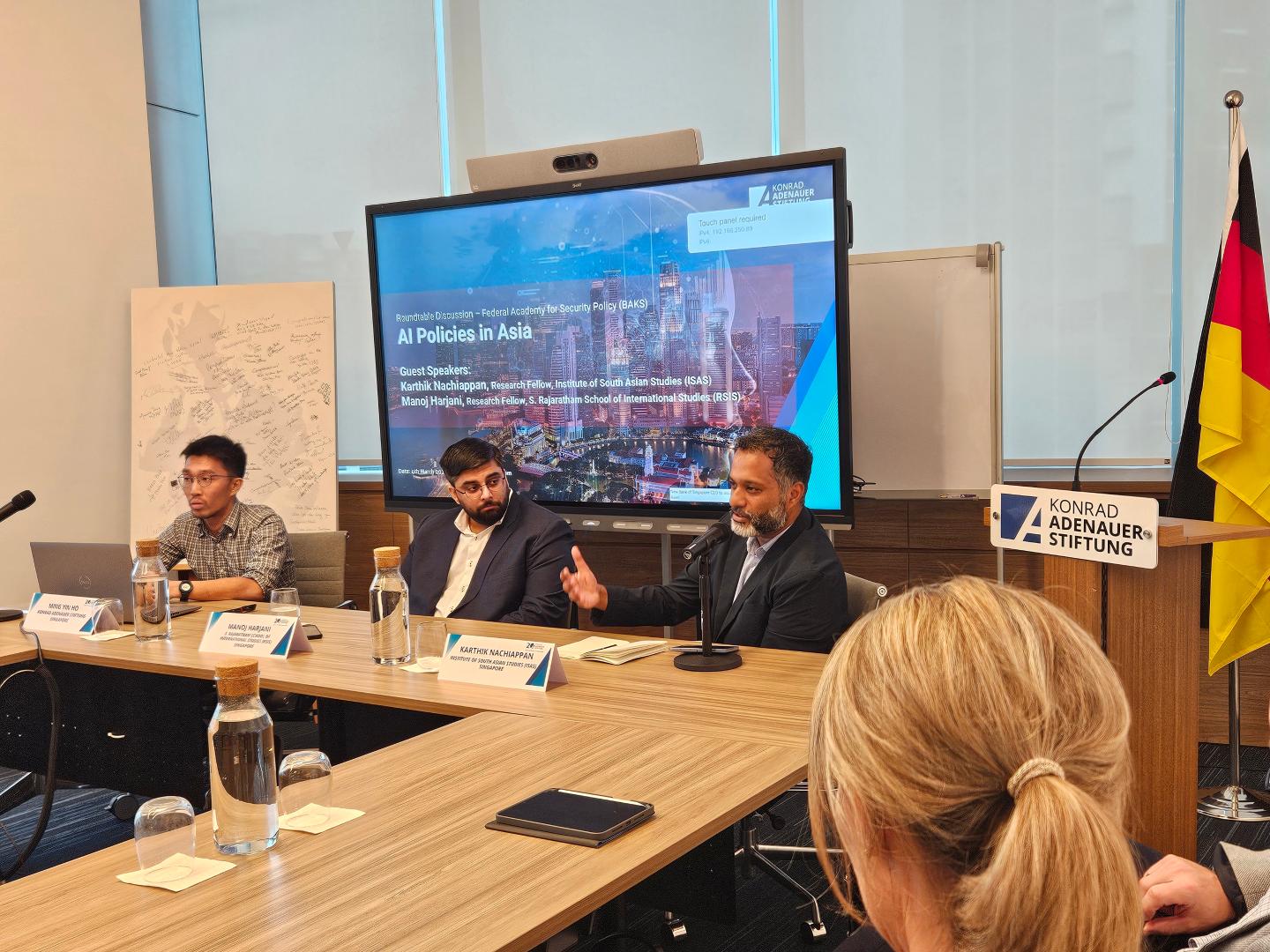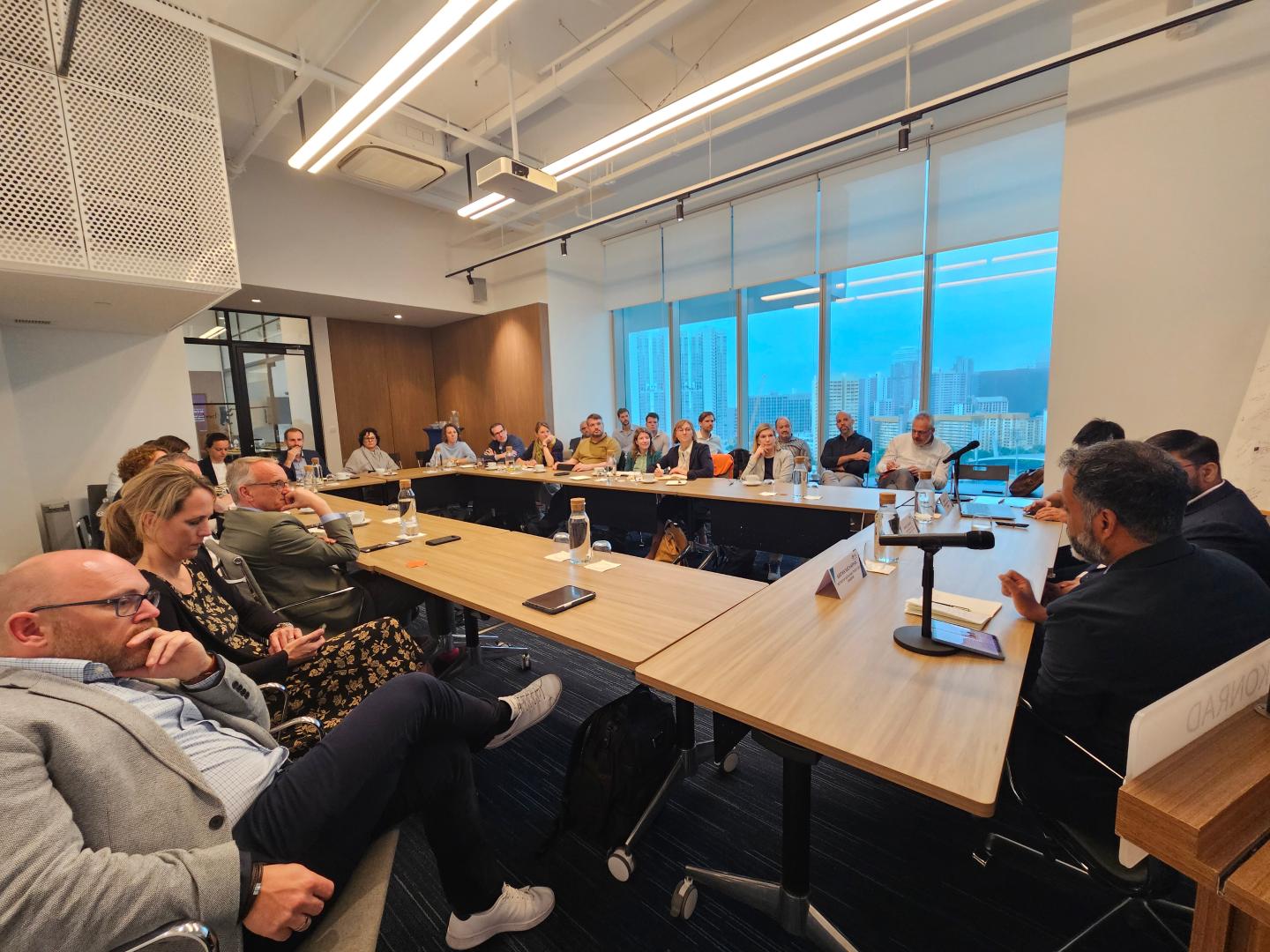On March 4th the KAS Political Dialogue Asia (PDA) Program hosted a roundtable discussion on “AI Policy in Asia” for a delegation led by the Federal Academy for Security Policy (BAKS) from Germany. The delegation visited KAS Singapore Office, as part of its tour in Korea and Singapore focusing on the Digitalisation and Security Policy. It consists of senior officials and executive staff from public and private sectors, academia, political think-tanks and civil-society groups.
Last year BAKS also led a delegation to Singapore. KASPDA hosted a roundtable discussion for BAKS delegation regarding the KAS publication’s “Ddata culture and Iinnovation in Asia”. This year the discussion lied predominantly on the role of
Artificial Intelligence (AI) in Asia amid the boom of AI development since the launch of the ChatGPT in 2023. KAS has invited two experts to share their insights on the AI development in Asia.
Two invited guest speakers held short presentations with their views and research on AI. The first speaker was Dr. Karthik Nachiappan, a Research Fellow at the Institute of South Asian Studies at the National University of Singapore. He highlighted the current opportunities and challenges of AI regulations from the global and Asia perspectives.
The second speaker was Manoj Harjani, a Research Fellow in the Military Transformations Programme within the Institute of Defence and Strategic Studies at the S. Rajaratnam School of International Studies (RSIS), Nanyang Technological University. He focuses on the AI policy and governance landscape from the ASEAN perspective.
Some Key Takeaways and Highlights of the discussion are as follows:
- While all member states are investing on strengthening their AI capabilities, there is still a huge divide among member states. Countries like Singapore and Malaysia are more advanced with better infrastructure, while developing countries like Laos, Myanmar and Cambodia are lagging behind.
- China and the EU are important players in shaping the AI governance landscape in the region.
- States initiatives are more predominant in shaping the AI landscape in Asia, while private corporations are more the dominant players in the US and Europe. This is partly due to the fact that private corporations in Asia have less capital and need state support to be able to compete with the big tech companies from the West or China
- People in Asia are relatively positives towards the impact of AI, while in the West, especially in Germany, people are more negative and focused more on the risk factor of AI. This echoes the different approaches adopted in shaping the AI governance landscape: While the EU is more critical and focusing on addressing on the threats(e.g. EU AI Act), Asian countries are focusing more on unleashing the opportunities.
- Although ASEAN has proposed some initiatives to try and create rules and guidelines to mitigate the risks posed by AI, but these are not obligatory. Nevertheless, it can still be a starting point for ASEAN members to come up with more comprehensive regulatory frameworks.
- While the EU is a strong player in shaping the AI governance landscape (e.g. upcoming EU AI Act), China, on the other hand, is also ambitious in expanding its influence in the discussion of a global universal AI governance standards.













